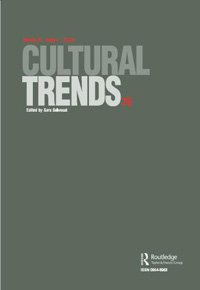
Last year, I presented a paper called “The Promise of Cultural Networks: Towards a research framework for the study of region-specific cultural network ecosystems” at the Cultural Trends Conference “In Search of Cultural Policy” that took place in London, UK.
Here is the PowerPoint presentation I used during my presentation in London, and the abstract of a paper I recently wrote, based in this material:
Abstract
In a recent meeting of arts and cultural organizations, attendees suggested that Latin America exhibited a particular regional ecology of cultural networks, characterized by a richness and diversity in network experiences. However, the lack of information regarding these formations, together with the unstable and multivocal nature of the term “culture” and the network form suggests the need for new critical approaches. This paper presents a research framework for the study of region-specific cultural network ecosystems. This framework aims to address an emerging politics of relationality among arts and cultural organizations and the processes through which these groups perceive and construct new notions of togetherness, attempting to move past old practices of grassroots governance. The paper uses three case studies of cultural networks in Latin America to illustrate cultural networks as domains for social action, vehicles for the construction of futurity and meaning structures that engineer new social relations. It also considers particular artifacts that should be considered in the study of cultural networks, and presents transdisciplinarity as a pedagogical form employed by cultural networks in an effort to learn and share critical practices today.
“THE PROMISE OF CULTURAL NETWORKS: Towards a research framework for the study of region-specific cultural network ecosystems” presented at the Cultural Trends Conference “IN SEARCH OF CULTURAL POLICY” on Thursday, November 24th, 2011 (London, United Kingdom).
Note: The original title for the presentation was: “Cultural associations, technology-based networks and the struggle for a new paradigm in cultural policy-making for social development in Latin America”. This changed overtime.
I would like to thank Prof. Brett Gary and my peers at NYU-MCC for their comments and helpful suggestions during the writing of this piece, especially those by Burcu Baykurt and Cassie Robbins.